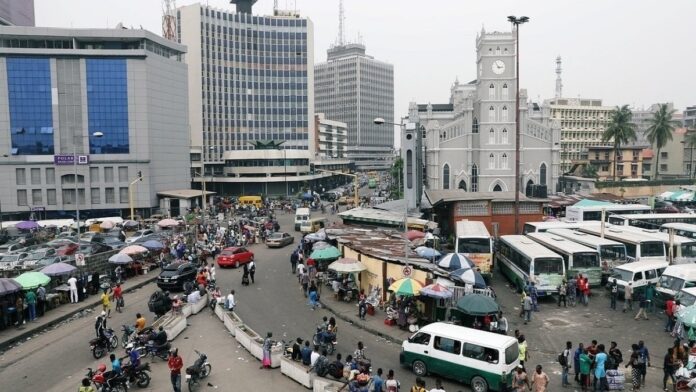Agency Report
Nigeria’s private sector activities downturn deepened in March 2023, according to Purchasing Manager Index released by S&P Global on behalf of Stanbic IBTC.
In a report released yesterday, the Purchasing Manager Index noted that the cash crisis in Nigeria continued to have a severe impact on business conditions in the private sector during the last month.
In fact, output and new orders fell more quickly than in February, while staffing levels and purchasing activity were scaled back again, the PMI report stated.
While input costs and output prices continued to rise sharply, rates of inflation softened. Output prices increased at the softest pace in almost three years.
Meanwhile, suppliers’ delivery times shortened after having lengthened in February. The headline PMI posted 42.3 in March from 44.7 in February, moving further below the 50.0 no-change mark and signalling a sharper deterioration in business conditions in the Nigerian private sector.
The report agrees that the decline was the most pronounced since the survey began in January 2014, apart from at the time of the outbreak of the COVID-19 pandemic in 2020.
As was the case in February, there were widespread reports from companies that customers were unable to commit to spending given cash shortages.
This led to a substantial decline in new business, with the pace of contraction more pronounced than in the previous survey period, it said.
According to the index, the same picture was seen with regards to business activity, which decreased at a rate only exceeded in April and May 2020.
“All four broad sectors posted reductions in activity at the end of the first quarter. Companies reduced staffing levels slightly for the second month running, in part reflecting lower workloads but also due to difficulties paying wages.
“Lower workforce numbers limited the pace of staff cost inflation, which eased to a marginal rate that was the slowest since January 2021.
“Purchasing activity was also scaled back, falling at the fastest pace since May 2020. In turn, inventory holdings also decreased. Inflationary pressures eased in March.
“The pace at which purchase costs increased was the slowest in just under three years but remained sharp and faster than any seen prior to the pandemic.
“The same picture was seen with regards to output prices, which rose at the slowest pace since April 2020. Suppliers’ delivery times shortened in March, following the first lengthening in more than five years during February.
“Quicker deliveries reportedly reflected competition among suppliers. The cash crisis acted to dampen confidence in the private sector in March, with sentiment the second-lowest in the series history”.
Where output was predicted to rise, panellists linked this to investment intentions and business expansion plans.
Speaking to the report, Muyiwa Oni, Head of Equity Research West Africa at Stanbic IBTC Bank commented: “Stanbic IBTC Bank headline PMI declined to 42.3 in Mar from 44.7 in Feb, the second consecutive contraction in private sector business conditions in over two years”.
Oni said the continuous decline relative to February reflects the negative impact of cash shortage across different segments of the economy over the past two months”.
“Currency in circulation declined by 58% in January 2023 to N1.39tn from N3.01tn in December 2022, while currency outside the banks declined by 72% in January 2023 to N789bn from N2.57tn in December 2022.
“Nevertheless we expect an improvement in economic conditions given that the Central Bank of Nigeria has stepped back on the cashless policy and is steadily increasing the volume of cash in the economy following the directives from the courts.
“However, these readings indicate that reported GDP figures for Q1:23 will be weak and broadly behind our expectations of 2.4%. We project the Nigerian economy growing at 3% in 2023”. Oni added.

